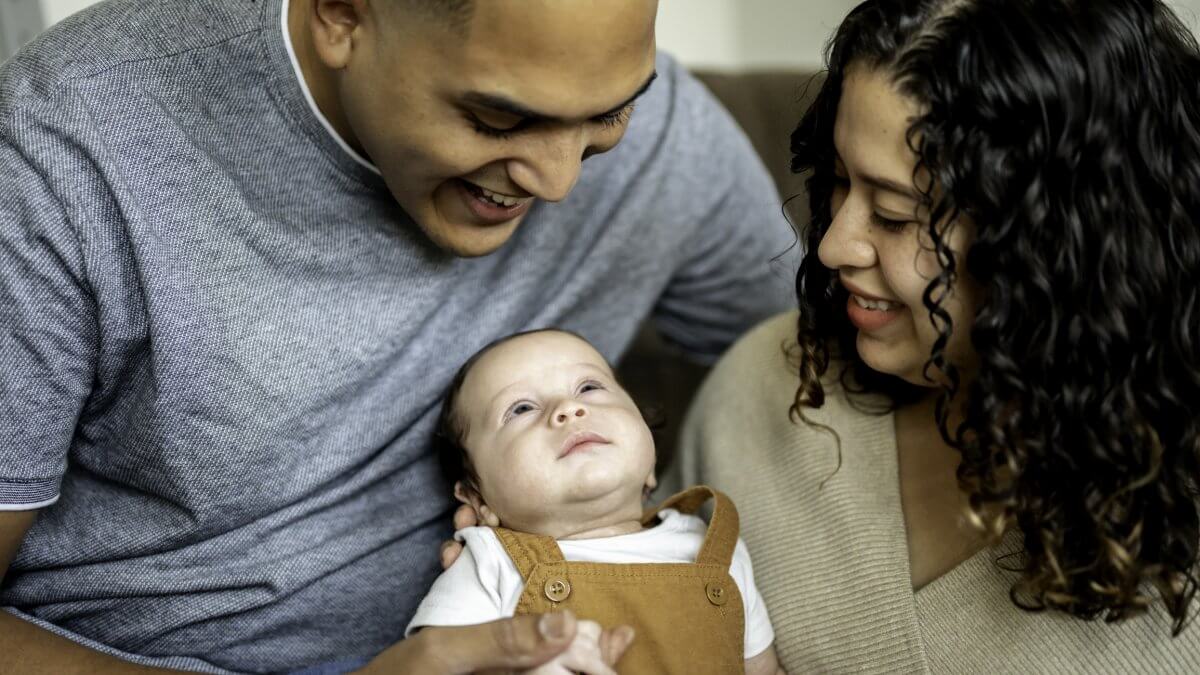If you’re a cancer survivor or have a history of cancer treatment, surrogacy can offer a path to parenthood.
Whether your reproductive organs were affected by cancer treatments or for other reasons, surrogacy can provide the opportunity to fulfill your dream of becoming a parent.
Get in touch with us online to find out more about how to become a parent through surrogacy. We’re here for you whenever you need us.
This article will take a look at certain situations where surrogacy may need to play a role in your journey to becoming a parent and how you can start that process.
How Surrogacy for Cancer Survivors Can Help Build Your Family
For cancer survivors, surrogacy can be a more effective option for parenthood. If your fertility was impacted by treatment, using a surrogate allows you to overcome those challenges.
Surrogates are thoroughly screened to ensure they’re capable of achieving and safely carrying a pregnancy, which includes verifying medical histories and providing records of successful past pregnancies and births.
By using a surrogate, cancer survivors can increase the chances of a successful pregnancy, while avoiding complications that could arise from carrying a pregnancy themselves.
If you already have embryos created, we can match you with a surrogate quickly. Fill out our simple form to view our highly-qualified surrogates.
If you’re in the embryo creation process we can walk you through the necessary paperwork to get started so that you have one less thing to tackle when your embryos are ready.
Reasons to Consider Surrogacy After Cancer Treatment
Surrogacy for cancer survivors is a viable option for growing a family. Several circumstances may lead you to consider surrogacy:
- Reproductive organ damage from cancer treatment, such as chemotherapy or radiation.
- Reproductive organ removal as part of your cancer treatment plan.
- You froze eggs or embryos before undergoing cancer treatment but IVF has been unsuccessful.
- IVF with donor eggs has been unsuccessful.
- Low egg quality or low ovarian reserve due to effects from cancer treatment.
If you or your partner has faced fertility challenges due to cancer treatment, surrogacy provides an opportunity to build the family you’ve always envisioned.
Can cancer treatment cause infertility?
Yes, cancer treatments, including chemotherapy and radiation, can have significant impacts on fertility. These treatments may damage reproductive organs, disrupt hormone levels or lead to infertility.
As a result, many cancer survivors experience infertility after cancer treatment.
Your doctor should discuss how specific treatments may affect your fertility and explore the option of surrogacy for cancer patients.
Several factors influence how cancer treatment affects fertility, such as:
- Age at the time of treatment: Younger patients may have better fertility preservation options.
- Type of cancer: Uterine and ovarian cancers may impact your reproductive organs, resulting in infertility.
- Extent and duration of treatment: More intensive or prolonged treatments may have a greater impact.
- Baseline fertility: You may have been struggling with infertility prior to your cancer diagnosis and/or treatment.
- Other health conditions: Other personal health factors like autoimmune and thyroid disorders can affect fertility outcomes after cancer.
Affording Surrogacy: Grants for Cancer Patients
While surrogacy for couples with a history of cancer treatment is a valuable option, the process can be expensive.
If you have been through cancer treatment, the medical costs associated with that could have you concerned about the costs associated with surrogacy.
Fortunately, several surrogacy grants for cancer patients are available.
These include grants for surrogacy after chemo, surrogacy after cancer and more. Here are a few:
- Heart Beat Program: Provides certain fertility medications for free to eligible patients who have received a diagnosis of cancer and had no chemotherapy within the past 12 months.
- LIVESTRONG Fertility: Provides financial assistance for fertility treatment for those diagnosed with cancer.
- Worth the Wait: Provides financial support for fertility treatments, adoption and surrogacy to young adult cancer survivors pursuing parenthood.
- The SAM Fund:Provides scholarships to young adult cancer survivors for cancer-associated costs in two categories: Storage of eggs, embryos or sperm (up to $1000.00) and Expenses for fertility procedures such as testing, IUI, IVF, gestational carrier, adoption, etc. (up to $4000).
- Starfish Infertility Foundation: The Bexleigh and Braxton grants give couples that do not have infertility insurance or financial resources to pay for infertility treatments.
We understand the financial strain that cancer treatment and surrogacy can place on families. Learn about financing options that may help you cover the cost of your surrogacy journey.
Exploring Surrogacy After Cancer [Get the Support You Deserve]
People from all walks of life and background pursue surrogacy for various reasons. Surrogacy after cancer is one of them.
Surrogacy after cancer treatment follows the same general steps as any surrogacy journey, but with additional emotional and medical support tailored to your specific needs as a cancer survivor.
Here’s a breakdown of what you can expect:
- Step 1. Contact Us: Reach out to our team to discuss your options and get a personalized consultation on surrogacy after cancer treatment. Fill out our quick and easy form now.
- Step 2. Find the Perfect Surrogate: Based on your needs and preferences, we will help you find a surrogate in as quickly as 1 - 4 months.
- Step 3. Begin the Legal Process: Your surrogacy attorney will guide you through the contract process, ensuring you are protected legally.
- Step 4. The Embryo Transfer: Once the surrogate is ready, the embryo transfer is scheduled. This step involves transferring a fertilized embryo into the surrogate’s uterus.
- Step 5. The Birth of Your Baby: As you welcome your new child into the world, you’ll experience the joy and fulfillment of becoming parents.
Get in Touch to Learn More About Surrogacy for Cancer Survivors
If you’re considering surrogacy after cancer treatment, we’re here to support you every step of the way.
Contact us to learn more about how we can assist you on your path to parenthood.









